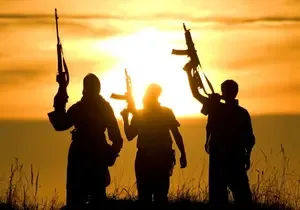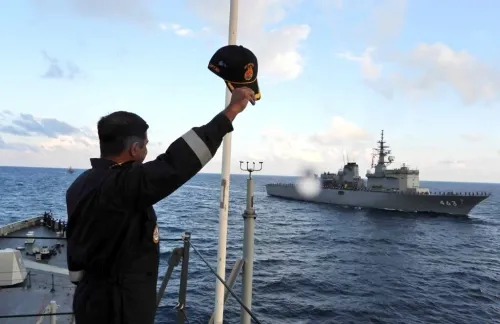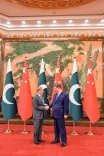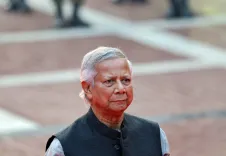Are TTP, ISKP, LeJ Planning Escalated Attacks Amid Pakistan Army's Vulnerability?

Synopsis
Key Takeaways
- The Pakistan army is currently facing significant vulnerabilities.
- Groups like TTP, ISKP, and LeJ are planning escalated attacks.
- The situation in Balochistan adds another layer of complexity to the security landscape.
- Internal divisions within allied groups pose challenges for the Pakistan establishment.
- The fragile truce with the Taliban raises questions about long-term stability.
New Delhi, Oct 21 (NationPress) The Pakistan army has recently found itself in several compromising situations. The Operation Sindoor has revealed significant vulnerabilities within the army, leading to substantial losses inflicted by the very terrorist groups it has fostered.
While Pakistan has entered a fragile agreement with the Taliban, many observers are skeptical about its longevity. The mounting damages incurred by the Tehreek-e-Taliban Pakistan (TTP) have now inspired other militant factions to challenge the establishment.
Analysts monitoring Pakistan's security landscape suggest that various groups are intent on displacing the current regime. The TTP, Lashkar-e-Jhangvi (LeJ), and the Islamic State Khorasan Province (ISKP) are all advocating for the establishment of an Islamic governance system in Pakistan, aiming to overthrow the existing authorities.
The LeJ has predominantly engaged in sectarian attacks, especially targeting religious minorities, and is no longer in the good graces of the government. There are concerns that it may soon escalate its operations.
Historically, the LeJ has launched assaults on the Pakistani state, raising alarms in Islamabad about the potential for renewed alliances with either the ISKP or TTP. The ISKP, initially brought into Pakistan to counter the TTP and Afghan Taliban, may not remain passive amid the current truce.
Previously, the ISKP allied with the Pakistani establishment to combat the Afghan Taliban. However, if a ceasefire has been reached, the ISKP might reconsider its stance. It is more plausible that ISKP would align itself with the LeJ rather than the TTP, which is perceived to enjoy the backing of the Afghan Taliban.
Moreover, the ISKP consists of former TTP members, making collaboration challenging. Regardless of any potential alliances, these factions are acutely aware of the Pakistan army's weaknesses.
Authorities within the Intelligence Bureau have indicated that, according to their evaluations, these groups might intensify their assaults against the establishment, even if they operate independently. Pakistan is currently unable to enlist the support of groups like Lashkar-e-Tayiba or Jaish-e-Mohammad to confront these threats. The latter has displayed a fluctuating relationship with the government, and should it be called upon to engage the TTP, it could face internal divisions.
Jaish-e-Mohammad tends to sympathize with both the Afghan Taliban and TTP, which makes its cooperation with the state unlikely. Similarly, Lashkar-e-Tayiba has not rebelled against the establishment, but there was a significant risk of dissension when Pakistan supported the US in Afghanistan, leading some members to threaten to defect to the Taliban.
As the danger of these groups spiraling out of control looms, the Pakistan army is also grappling with other issues, particularly in Balochistan.
Baloch factions are motivated by ethnic nationalism and a desire for independence, having caused considerable embarrassment to the Pakistan army by targeting Chinese nationals and investments, in addition to military personnel. These groups have recognized the army's vulnerabilities and, with Pakistan facing multiple challenges, they are likely to increase their confrontations in Balochistan as well.









